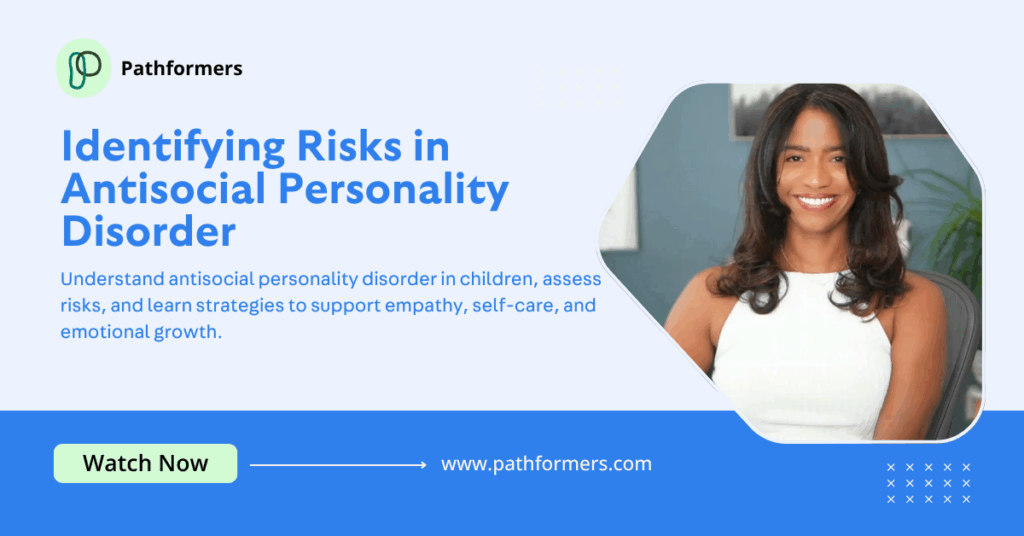This video helps parents understand the risks and behaviors linked to antisocial personality disorder (ASPD) in children. Learn how to foster empathy, build self-care, and support your child’s emotional development while working with providers to assess risk and determine the best path forward.
Identifying Risks in Antisocial Personality Disorder
Common Pain Points
Lorem ipsum dolor sit amet, consectetur adipiscing elit, sed do eiusmod tempor incididunt.
Understanding the Risk of Violence in Children with Antisocial Personality Disorder
Parents and caregivers often feel confused or overwhelmed when trying to assess the risk of violence in children diagnosed with antisocial personality disorder. The challenge lies in distinguishing between predatory and affective violence, and determining the level of risk for each type. This makes it difficult for parents and professionals to know what interventions are needed and how to keep their child and others safe.
Navigating Therapeutic Approaches
Parents may struggle with finding the right therapeutic approach for children with antisocial tendencies, especially since traditional approaches to empathy and socialization may not be effective. Ensuring the child’s personality is reintegrated without overwhelming them with excessive anxiety is a delicate balancing act. Additionally, it can be frustrating when standard therapy does not yield quick results.
Managing Violent or Acting-Out Behavior
Children with antisocial personality traits may engage in violent or disruptive behavior, and parents and educators may struggle to effectively manage these outbursts. The behaviors may seem unpredictable or rooted in deep emotional pain, making it hard to establish consistent boundaries and consequences. The tendency to act out may provide the child with temporary relief from anxiety, complicating the process of teaching long-term self-regulation.
Module Benefits
Lorem ipsum dolor sit amet, consectetur adipiscing elit, sed do eiusmod tempor incididunt.
Understanding and Assessing Risk
This module will provide a clear understanding of the two types of violence associated with antisocial personality disorder: predatory and affective. Parents, educators, and professionals will learn how to assess the risk of violence in children and teenagers, helping them make informed decisions about interventions and safety. This understanding will guide the development of tailored treatment plans.
Therapeutic Strategies for Building Empathy
Participants will learn strategies for fostering genuine empathy in children with antisocial personality traits. By focusing on nurturing the child’s sense of self-worth, this module will help parents and caregivers understand how to create a foundation of care that encourages the child to develop empathy for themselves, which is crucial for empathy towards others. Practical, compassionate strategies will be discussed to integrate care and empathy in therapy.
Identifying and Managing Severe Cases
For children who exhibit violent or sadistic behavior, this module will provide guidance on identifying those who may need more intensive care, such as residential psychiatric treatment. Participants will learn how to collaborate with professionals to determine the appropriate level of care and interventions, ensuring that both the child’s and others' safety are prioritized while working towards long-term positive change.
Help Steer Your Child’s Development
Subscribe to our newsletter for exclusive video updates, expert parenting strategies, and the latest insights in child development and mental health.

